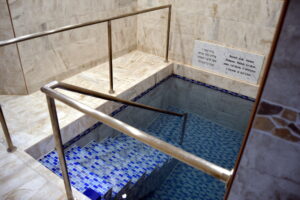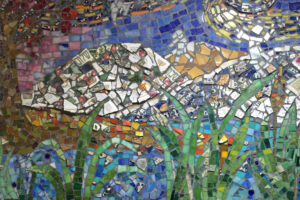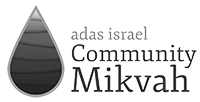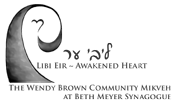Member Spotlight: Ohev Sholom Mikvah Chaim
by Savannah Lipinski, Rising Tide Intern

Ohev Sholom is an Orthodox congregation in Washington D.C. that is home to Mikvah Chaim, an inclusive and welcoming mikveh. The idea to bring a mikveh to the congregation came after a scandal surrounding a local Rabbi spying on women in the mikveh shook the Orthodox community of D.C. in 2014 and left many of the women distrusting of their mikveh experience. Ohev Sholom wanted to create a space where immersees were in control of their experience and that was as safe, welcoming, and accommodating as possible. When discussing the decision to make the mikveh inclusive to the entire Jewish community, Maharat Ruth Friedman said “of course it would be.”
Maharat Friedman learned about Mayyim Hayyim in 2010 and attended the “Gathering the Waters” conference. She was deeply inspired by the work that they were doing and knew that she wanted to be connected to the organization. Mikvah Chaim is a member of the Rising Tide Network, and they are grateful to remain connected with other open mikva’ot through the listserv and Mikveh Guide trainings. Maharat Friedman sees Mikvah Chaim’s connection to Mayyim Hayyim and Rising Tide as a comforting connection for visitors familiar with the open mikveh movement.
One thing that makes Mikvah Chaim so unique is that they are truly inclusive to the entire spectrum of Jewish identity. Their physical space reflects this inclusivity. They have both a men’s and women’s mikveh, two separate lobbies that allow space for families, a Beit Din, or a wedding gathering. On any given day, Mikvah Chaim may welcome Chasidic men visiting for the holidays, women marking transitions in their own bodies, adults or children converting to Judaism, or any number of traditional or non-traditional mikveh users. For a long time during the pandemic, Mikvah Chaim was the only mikveh in D.C. offering some of these services, including immersions for conversion. Maharat Friedman shared that she believes since the mikveh is designed in a kosher way, it should be open for all uses.

The staff at Mikvah Chaim strive to create a welcoming and inclusive space, and they hope that members of the community see it that way. They recognize that, for many women in the community, the scandal that surfaced in 2014 continues to inform how they use mikveh today. Mikvah Chaim offers a welcoming mikveh experience in which sensitivity and inclusivity are prioritized. There is a mosaic on the wall at Mikvah Chaim that was created by the community during the time of the scandal. A community member who was a mosaic artist led a gathering to create a mosaic for the new mikveh. This mosaic continues to represent the power of the community at Mikvah Chaim, the self-guided experience the mikveh offers, and the diversity and inclusion that make Mikvah Chaim unique.
Learn more and connect with Ohev Sholom Mikvah Chaim at https://www.mikvahchaim.org/



